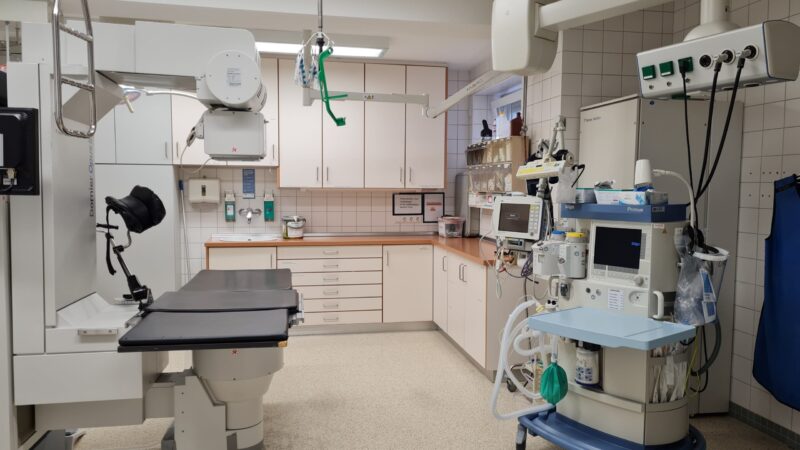Efficient procurement processes are the lifeblood of any successful healthcare system. From sourcing essential goods and services to ensuring regulatory compliance, the way healthcare organizations manage their procurement can have a profound impact on patient care, financial stability, and overall operational efficiency. In this comprehensive guide, we will explore the strategies that healthcare facilities can implement to enhance their procurement processes, emphasizing the importance of efficiency and sustainability.
Here is Why Procurement Processes Matter
Before delving into the strategies, it’s crucial to understand why efficient procurement processes are essential in healthcare.
- Cost Savings: Efficient procurement processes contribute to significant cost savings. By streamlining workflows, negotiating favorable contracts, and minimizing waste, healthcare organizations can allocate resources more effectively, ultimately leading to financial sustainability.
- Operational Efficiency: Smooth procurement processes enhance operational efficiency by reducing delays and ensuring timely access to necessary goods and services. This, in turn, improves overall patient care and satisfaction.
- Regulatory Compliance: Strict regulatory requirements govern healthcare procurement to ensure patient safety and quality standards. Efficient processes facilitate compliance, reducing the risk of legal issues and financial penalties.
- Sustainability: Adopting sustainable procurement practices is not only environmentally responsible but also cost-effective in the long run. Minimizing waste, utilizing eco-friendly transportation options, and supporting local suppliers contribute to a greener healthcare system.
Now, let’s explore seven strategies to improve healthcare procurement processes:
Source Goods and Services Locally.
Sourcing goods and services locally not only supports the community but also reduces transportation costs and carbon footprint. Local suppliers may offer competitive pricing, fostering a mutually beneficial relationship.
Identify local suppliers for common healthcare needs, such as medical supplies and equipment. Establish partnerships with regional businesses, promoting a sustainable and community-focused procurement approach.
Embrace Automation (E-Procurement)
Automation streamlines the entire procurement process, from requisition to payment. It reduces errors, enhances transparency, and allows for real-time tracking of orders, leading to increased efficiency and accuracy.
Invest in e-procurement software that integrates with your existing systems. Train staff on the new processes to ensure a smooth transition.
Automation not only saves time but also enables data-driven decision-making.
Centralize Hospital Procurement Processes
Centralizing procurement processes eliminates redundancies, standardizes practices, and provides better control over spending. It also facilitates bulk purchasing, leading to significant cost savings.
Establish a centralized procurement department responsible for overseeing all purchasing activities. Utilize Group Purchasing Organizations (GPOs) to negotiate contracts and secure discounted rates on behalf of multiple healthcare facilities.
Streamline Supply Delivery System
Streamlining the supply delivery system reduces lead times, minimizes stockouts, and optimizes inventory levels. This efficiency is crucial for maintaining continuous patient care and avoiding unnecessary disruptions.
Implement just-in-time inventory management systems to minimize excess stock. Work closely with suppliers to establish reliable delivery schedules.
Utilize data analytics to forecast demand and plan procurement accordingly.
Embrace Environmentally Friendly Transport Options
Opting for environmentally friendly transport options aligns with sustainable procurement practices, reducing the carbon footprint associated with the delivery of goods.
This not only benefits the environment but also enhances the organization’s public image.
Collaborate with transportation providers that prioritize sustainability. Consider utilizing public transport, electric vehicles, or eco-friendly courier services for the delivery of medical supplies and equipment.
Confirm Inventory Imbalances by Considering the Needs of Other Departments
Preventing inventory imbalances ensures that each department has access to the supplies they need without excess or shortages. This results in more effective patient care and avoids unnecessary procurement costs.
Establish clear communication channels between different departments to understand their specific needs.
Implement cross-functional teams to coordinate procurement efforts and share insights on inventory requirements.
Look for Experts to Monitor Regulatory Compliance
Monitoring regulatory compliance is essential to avoid legal issues and maintain the highest standards of patient care. Having experts dedicated to this task ensures that the organization stays abreast of changing regulations.
Employ or consult with experts in healthcare procurement regulations.
Establish regular training programs for procurement staff to stay informed about compliance requirements. Regularly audit procurement processes to identify and address potential compliance issues.
Conclusion
Efficient healthcare procurement processes are fundamental to the success of any healthcare organization. The continuous pursuit of improvement in procurement processes not only benefits the organization but also plays a crucial role in delivering optimal patient care. By implementing the strategies outlined above, you’ll enhance your overall efficiency, reduce costs, and contribute to a sustainable and patient-focused healthcare system.



Write a comment
Your email address will not be published. All fields are required